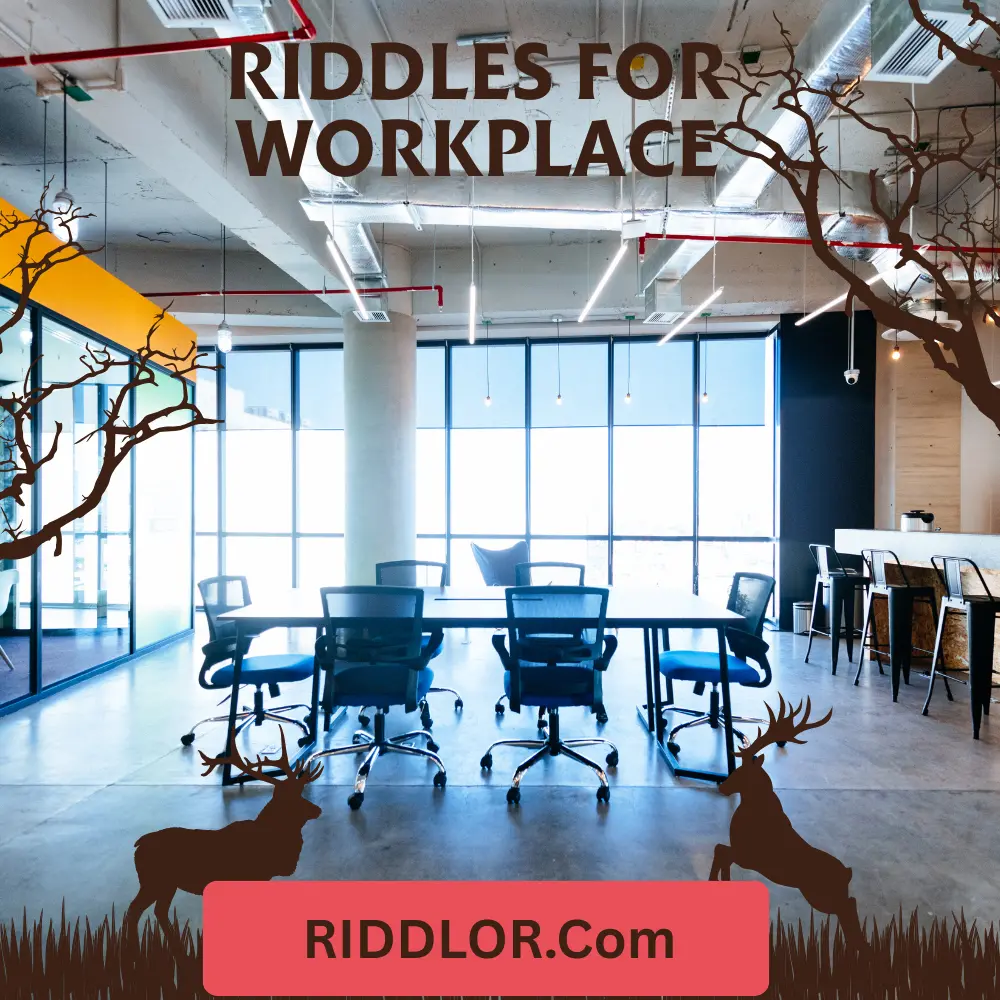Riddles add a fun and engaging element to the workplace, fostering teamwork, creativity, and critical thinking.
Whether you’re looking for a way to break the ice, entertain colleagues, or spark engaging discussions, workplace riddles are an excellent choice.
This article explores different ways to phrase “riddles for workplace” in polite, professional, and casual settings, providing examples, context-based usage, and texting examples.
Polite Alternatives to “Riddles for Workplace”
When addressing colleagues, managers, or clients in a professional setting, choosing a polite alternative is key. Here are a few ways to phrase it:
- Engaging Brain Teasers for the Office
- Workplace-Friendly Puzzles
- Office-Appropriate Riddles
- Team-Building Riddles
- Corporate Mind-Benders
- Professional Brain Teasers
- Intellectual Challenges for Work
- Work-Related Thinking Puzzles
- Fun Office Riddles
- Brain-Stimulating Office Questions
Example Usage in Polite Contexts:
- “I have compiled a list of engaging brain teasers for the office. Let’s challenge ourselves!”
- “Try these professional brain teasers during our coffee break.”
- These team-building riddles will make our meetings more fun and interactive.
Professional Alternatives to “Riddles for Workplace”
When presenting riddles in a corporate or formal setting, it’s essential to maintain a professional tone. Here are suitable alternatives:
- Corporate Puzzle Challenges
- Workplace Critical Thinking Riddles
- Business-Themed Brain Teasers
- Office Productivity Puzzles
- Riddles to Enhance Problem-Solving Skills
- Strategic Thinking Riddles
- Workplace Engagement Puzzles
- Professional-Level Riddles
- Office Brain Workouts
- Skill-Building Riddles for Employees
Example Usage in Professional Contexts:
- “Let’s incorporate strategic thinking riddles into our leadership training.”
- “These workplace engagement puzzles will enhance our problem-solving approach.”
- “Here are some business-themed brain teasers to start our team meeting.”
Casual Alternatives to “Riddles for Workplace”
In a relaxed work environment, casual alternatives make interactions more enjoyable. Here are some fun ways to phrase it:
- Funny Work Puzzles
- Break-Time Riddles
- Office Banter Brain Teasers
- Cubicle Quizzes
- Watercooler Riddles
- Coffee Break Brain Teasers
- Desk Job Puzzles
- Lunchtime Riddles
- Fun Office Challenges
- Lighthearted Work Riddles
Example Usage in Casual Contexts:
- “Got some watercooler riddles to spice up the afternoon!”
- Break-time riddles are the best way to keep our minds active!
- “Here’s a funny work puzzle to lighten the mood!”
Texting Examples
If you want to share riddles via text, it’s important to use engaging and readable formats. Here are 15 examples:
- “Need a break? Try this brain teaser: What has keys but can’t open locks? 🔑🤔”
- “Quick office riddle: What has hands but can’t clap? (Reply for the answer!) 👏🏽😉”
- “Bored at work? Solve this: I speak without a mouth and hear without ears. What am I? 🧠💡”
- “Fun work challenge: What gets wetter as it dries? Answer and prove you’re a genius! 💧😆”
- “Brain boost! What comes once in a minute, twice in a moment, but never in a thousand years? 🕰️🧐”
- “Midday riddle: The more you take, the more you leave behind. What is it? 🚶♂️💨”
- “Office fun: I have branches but no leaves, no trunk, and no fruit. What am I? 🌳❌”
- “Let’s play! The more of me you take, the more you leave behind. What am I? 🤔💡”
- “Morning puzzle! You see me once in June, twice in November, but not at all in May. What am I? ✨”
- “Monday mood lifter: What’s full of holes but still holds water? 🤯🌊”
- “Boost your brain! What has a head, a tail, but no body? 💰🎭”
- “Lunch break teaser: I can be cracked, made, told, and played. What am I? 😆🎭”
- “Office challenge: What has a neck but no head? Think fast! ⏳😲”
- “Who’s the smartest in the office? Solve this: I am always running but never move. 🏃♂️❌”
- “Trivia time! Forward this: The more you remove from me, the bigger I get. What am I? 🎭”
Choosing the Right Alternative Based on Context
- For formal meetings or business emails, use professional alternatives such as “corporate puzzle challenges.”
- For casual work environments or Slack chats, go with fun phrases like “coffee break brain teasers.”
- For team-building exercises or workshops, opt for “strategic thinking riddles.”
- For lighthearted office fun, use “desk job puzzles” or “lunchtime riddles.”
Conclusion
Riddles bring creativity and engagement to the workplace.
By using the right phrasing based on the context—whether polite, professional, or casual—you can ensure that your workplace riddles are well-received.
Whether you’re looking to make meetings more interactive, boost problem-solving skills, or simply add some fun to the day, these alternatives offer versatile ways to introduce riddles in a workplace setting.

